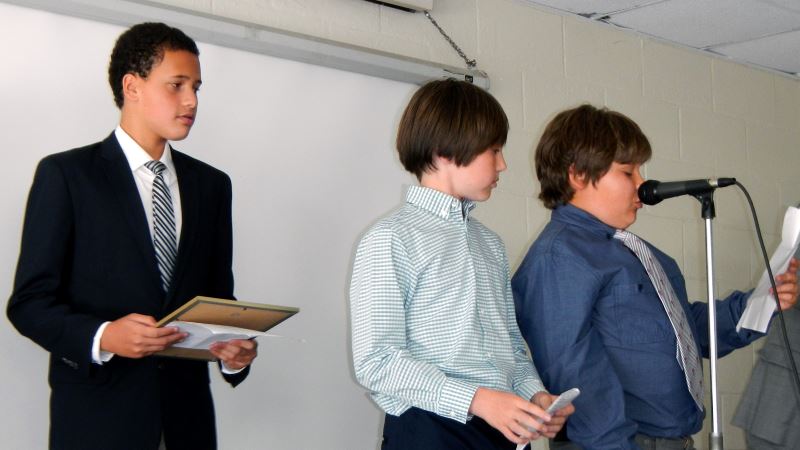• It’s a Secular observance. Developed by the Sholem Community, it meets the needs of families who honor their heritage and define their Jewish identity as cultural, historical, or ethnic, rather than religious.
• It’s as valid as any other form of bar/bas mitsve observance. Jewish folk traditions recognizing the maturation of adolescents have evolved continuously over many centuries. In 15th century Spain, it was a secret event (and remains so among some families in the Southwest U.S.). In 17th century Central Europe, it was banned by the rabbinate and later reinstated. In the late 19th century, in North America, it became limited to a rote recitation of a biblical “portion,” instead of an interpretive elaboration. The 20th century saw both the inclusion of girls as bas (or bat) mitsve and of this Secular version.
• In the Sholem Community, eligible students in its Sunday School choose a topic for in-depth research or for significant thought. The choices reflect the individual’s areas of interest…those aspects of Jewish heritage and identity that are most meaningful at this point in the young person’s life. Each individual is free to choose both the topic and the medium of presentation: spoken essay, dance, music, graphic art, drama, audio-visual statement, etc.
• Adapting the Eastern European tradition of presenting the celebrant with a khumeshl (a “little five,” i.e., Pentateuch, the Five Books of Moses, Torah), family members and friends are asked to present five “gifts” — preferably, non-material and brief — reflecting their hopes and aspirations for the young person.
•The Sholem Community recognizes the successful completion of the process with a certificate, A Credo For a Secular Bar/Bas Mitsve, composed by Sholem’s education director and now in use by other Secular Jewish schools and communities in North America and Israel.
• While our Secular Bar/Bas Mitsve concept focuses on each individual young person, it does so within a special context. Community is the keynote of Sholem, so the preparatory process involved all this year’s candidates together, as a group, and observances involve more than one family, planning and arranging the event cooperatively.
•…And, about that spelling. Bar is an Aramaic word, meaning “son.” Mitsve, meaning “commandment” or “obligation,” and Bas, meaning “daughter,” are spelled here as pronounced in Ashkenazic (Yiddish) Hebrew, while Bat and Mitzvah are the Sephardic (Israeli) variant. Both are equally valid and “correct.”

